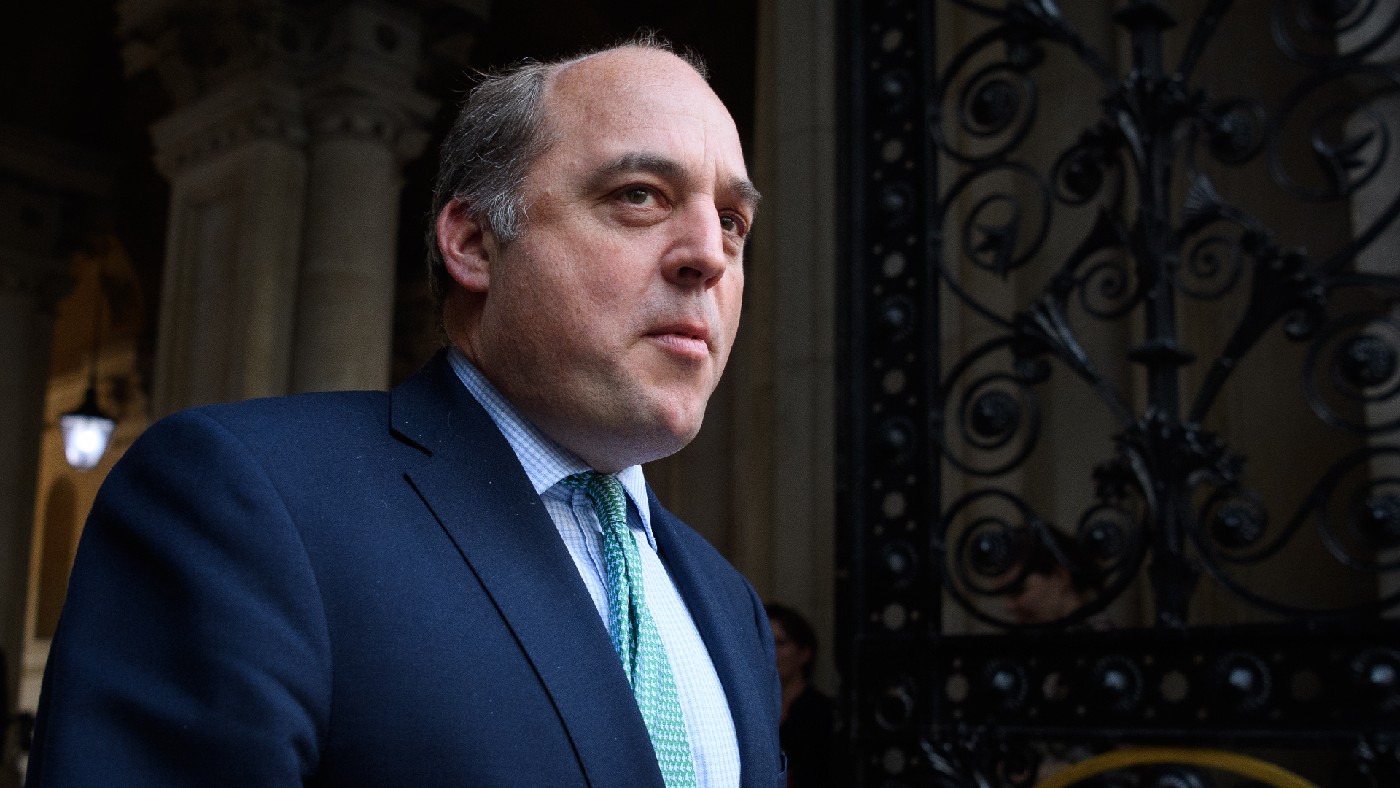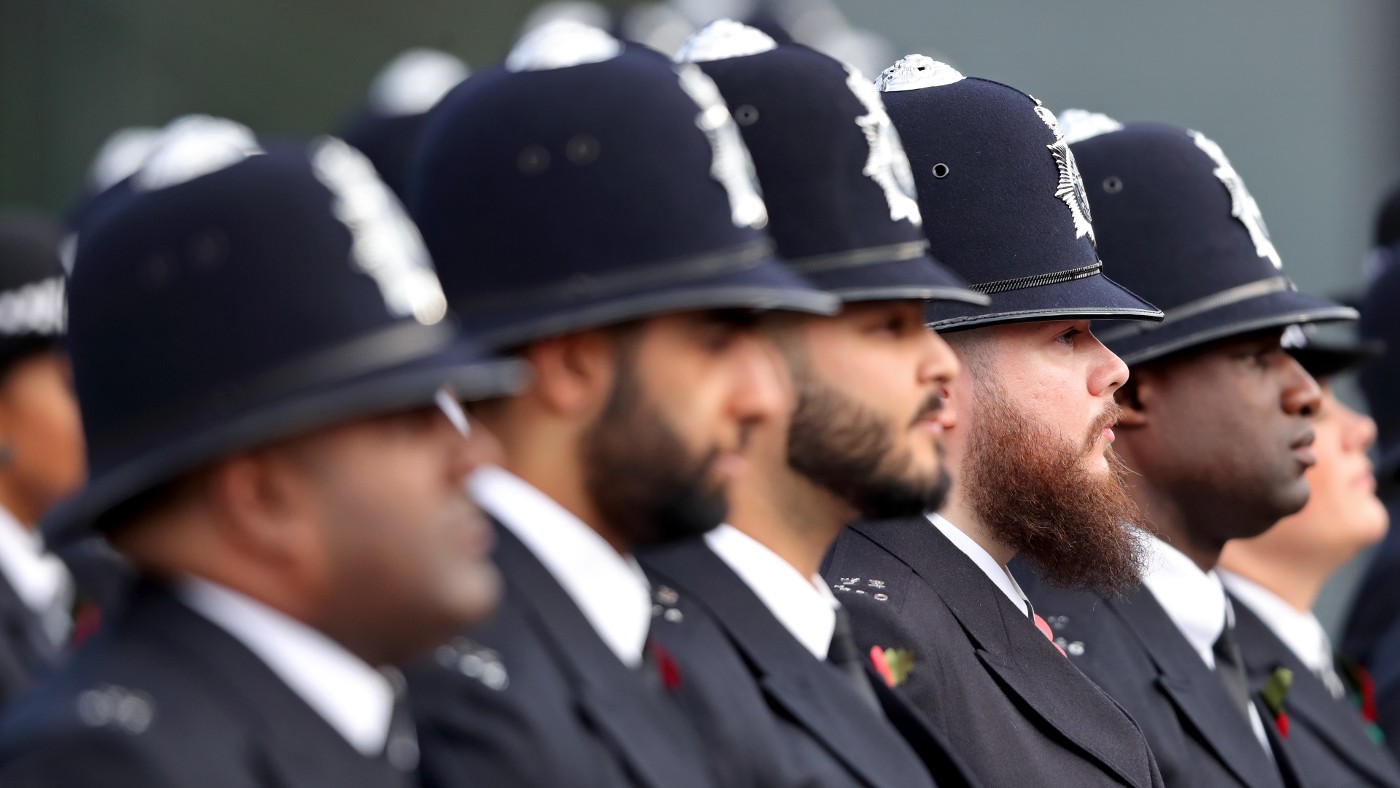MoD urged to investigate cover-up claims in murder of Kenyan woman
Agnes Wanjiru was last seen with British soldier before her battered body was discovered in hotel septic tank

A free daily email with the biggest news stories of the day – and the best features from TheWeek.com
You are now subscribed
Your newsletter sign-up was successful
The Ministry of Defence is facing calls to investigate allegations that a British soldier was responsible for the brutal murder of a 21-year-old Kenyan woman almost a decade ago.
The battered body of Agnes Wanjiru was discovered in the septic tank of a hotel in the town of Nanyuki in central Kenya in June 2012. She had last been seen two months earlier leaving the hotel bar with one of the dozens of British soldiers who were there drinking and dancing with local women.
Wanjiru was a hairdresser but had recently turned to sex work to provide for her five-month-old daughter, according to The Sunday Times, which has spearheaded the investigation into her death.
The Week
Escape your echo chamber. Get the facts behind the news, plus analysis from multiple perspectives.

Sign up for The Week's Free Newsletters
From our morning news briefing to a weekly Good News Newsletter, get the best of The Week delivered directly to your inbox.
From our morning news briefing to a weekly Good News Newsletter, get the best of The Week delivered directly to your inbox.
She “loved music and dancing”, and lived with her sister, Rose, in a single room in Nanyuki’s Majengo ghetto.
“Agnes was a cheerful and friendly girl, just like her daughter, Stacy,” Rose told the newspaper. “On the day she disappeared, she was just as happy as ever.”
Murder suspects
When Wanjiru’s badly injured body was discovered, she was naked “except for a white bra with an unopened condom packet shoved down one of the bra cups”, The Sunday Times reported. She had a 2cm stab womb in her abdomen, a blunt force injury to her chest and collapsed lungs.
A free daily email with the biggest news stories of the day – and the best features from TheWeek.com
Her body had decomposed and “was almost unrecognisable”, the paper said. Her sister identified Wanjiru but said: “The only way I knew it was her was because of her hair braids.”
However, after examining Wanjiru’s remains, a pathologist concluded that her injuries might not have been enough to have killed her – meaning she could have still been alive when her murderer dumped her in the septic tank.
A local police investigation into her death was launched, led by Corporal Ramadhan Jabali, who established that at least four witnesses had seen Wanjiru leave the hotel bar with a British soldier and go to a bedroom.
After going to the British army base in Nanyuki to ask for assistance, Jabali – who has since died – obtained a list of the names of the nine soldiers who had paid for a hotel room that evening. They were all from the same regiment and had returned to the UK within six days of the murder.
Jabali then wrote to the Royal Military Police asking for the nine soldiers to be questioned and to have DNA samples taken from them. But no such samples were provided and three of the nine soldiers confirmed to The Sunday Times that they had never been questioned about the case. The Ministry of Defence (MoD) denied receiving the request.
Fresh inquiry plea
The murder case was lost for years in what the paper described as “Kenya’s bloated bureaucracy” before an inquest into Wanjiru’s killing finally began in 2018. By then, the hotel was under new ownership, records weren’t available and key witnesses couldn’t be found.
The inquest concluded that “one or two” British soldiers were responsible for Wanjiru’s death. The judge demanded a new police inquiry into Wanjiru’s murder and another into the alleged cover-up.
But the British Army has yet to launch an investigation into Wanjiru’s death or to take any other action to seek justice for her family. One soldier told The Sunday Times that he was told to keep quiet by his superiors after trying to reveal what really happened.
The unnamed man, referred to only as Soldier Y, claimed to know the identity of Wanjiru’s murderer – and that the killer had shown him her body in the septic tank. “I told the proper people,” he said. “Everyone. All the lads, all the senior command that were there. I went to higher up, hierarchy, people that should have dealt with it. I got called a liar. They basically just said, ‘Shut up and get out.’”
Three other soldiers from the same unit also gave the same name for the alleged killer, referred to by The Sunday Times as Soldier X.
Soldier X did not feature on the original list of nine possible suspects. “In reality, dozens of soldiers from the regiment had been there using the bar, and had access to the rooms,” the paper added.
In light of the recent claims, a new murder inquiry has been launched by the Royal Military Police, and pressure is growing for the MoD to investigate both the murder and ensuing cover-up claims. Defence Secretary Ben Wallace is thought to be communicating with the Kenyan authorities over the matter.
Labour shadow defence secretary John Healey said in a statement that “justice must now be done for Agnes and her family”. He added that Wallace “should pledge the fullest cooperation to Kenyan detectives and launch an inquiry into any possible cover-up from commanding officers, military police or the MoD”.
A spokeperson for the MoD told The Sunday Times that the department is “currently in discussions with the Kenyan authorities to determine what support is needed”, but that it would “be inappropriate to comment further” while the investigation into Wanjiru’s murder is ongoing.
Kate Samuelson is The Week's former newsletter editor. She was also a regular guest on award-winning podcast The Week Unwrapped. Kate's career as a journalist began on the MailOnline graduate training scheme, which involved stints as a reporter at the South West News Service's office in Cambridge and the Liverpool Echo. She moved from MailOnline to Time magazine's satellite office in London, where she covered current affairs and culture for both the print mag and website. Before joining The Week, Kate worked at ActionAid UK, where she led the planning and delivery of all content gathering trips, from Bangladesh to Brazil. She is passionate about women's rights and using her skills as a journalist to highlight underrepresented communities. Alongside her staff roles, Kate has written for various magazines and newspapers including Stylist, Metro.co.uk, The Guardian and the i news site. She is also the founder and editor of Cheapskate London, an award-winning weekly newsletter that curates the best free events with the aim of making the capital more accessible.
-
 How the FCC’s ‘equal time’ rule works
How the FCC’s ‘equal time’ rule worksIn the Spotlight The law is at the heart of the Colbert-CBS conflict
-
 What is the endgame in the DHS shutdown?
What is the endgame in the DHS shutdown?Today’s Big Question Democrats want to rein in ICE’s immigration crackdown
-
 ‘Poor time management isn’t just an inconvenience’
‘Poor time management isn’t just an inconvenience’Instant Opinion Opinion, comment and editorials of the day
-
 ‘Stakeknife’: MI5’s man inside the IRA
‘Stakeknife’: MI5’s man inside the IRAThe Explainer Freddie Scappaticci, implicated in 14 murders and 15 abductions during the Troubles, ‘probably cost more lives than he saved’, investigation claims
-
 Kenya arrests alleged ant smugglers
Kenya arrests alleged ant smugglersspeed read Two young Belgians have been charged for attempting to smuggle ants out of the country to exotic pet buyers
-
 Kenya's 'epidemic of violence' against female athletes
Kenya's 'epidemic of violence' against female athletesUnder the Radar Murder of Olympic marathon runner Rebecca Cheptegei spotlights 'trend' of killings and wider culture of domestic abuse
-
 Why some Kenyans are sceptical about 'vampire' serial killer
Why some Kenyans are sceptical about 'vampire' serial killerUnder the Radar 'Kenya's Ted Bundy' has been linked to dozens of murders, but sceptics have questioned whether he is a scapegoat for the murders of anti-government activists
-
 Haiti's mass jailbreak: what do gang leaders want?
Haiti's mass jailbreak: what do gang leaders want?Today's Big Question Gangs hope violence will bring down Prime Minister Ariel Henry amid a growing security and economic 'nightmare'
-
 The countries that have banned conversion therapy
The countries that have banned conversion therapyIn the Spotlight Former PM Theresa May has urged UK government to ban practice for transgender people
-
 What putting Metropolitan Police in ‘special measures’ means for the force
What putting Metropolitan Police in ‘special measures’ means for the forceIn the Spotlight Scotland Yard facing greater scrutiny and pressure to produce improvement plan following criticisms by watchdog
-
 Maradona and the ‘simple homicide’ trial
Maradona and the ‘simple homicide’ trialIn the Spotlight Prosecutors claim football legend’s death was result of ‘omissions’ by medics and a psychologist